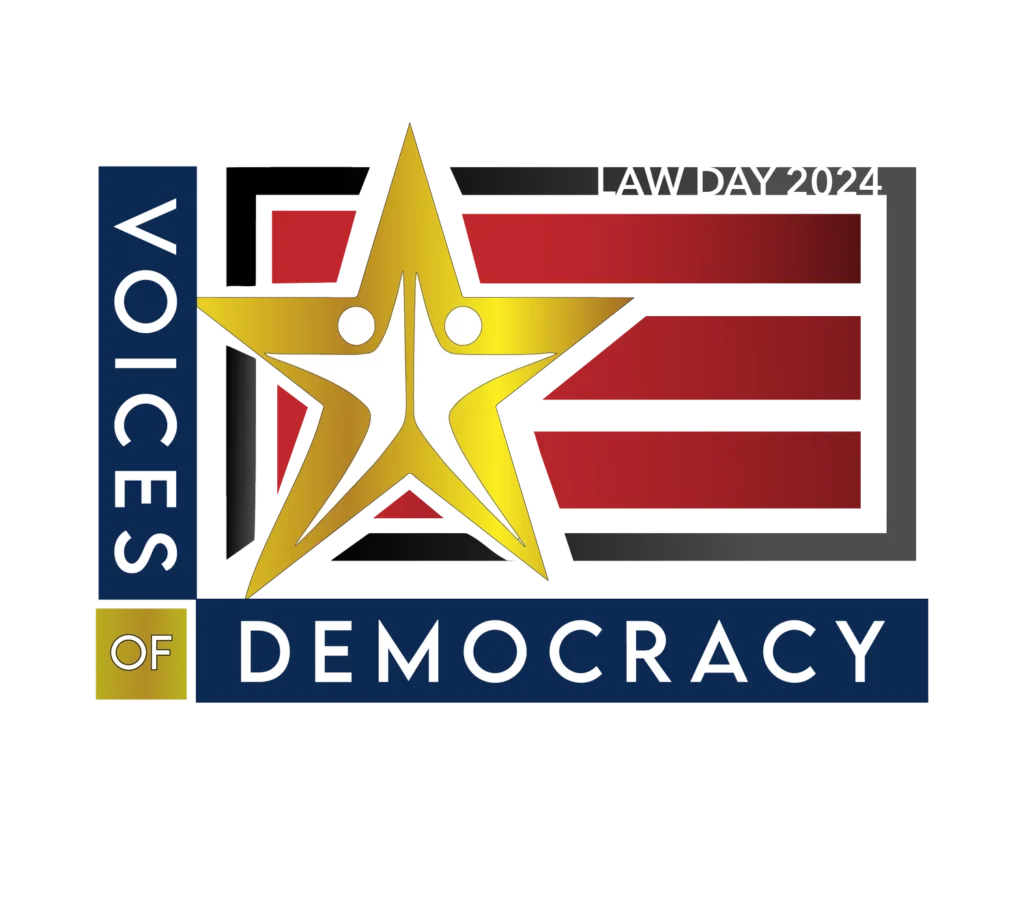May 1, 2024 @ 8:00 am – 5:00 pm

To celebrate Law Day 2024’s theme, “Voices of Democracy,” The Judge Johnson Institute is shining a spotlight on a conversation between two district judges from the U.S. Court for the Middle District of Alabama: Senior District Judge Myron Thompson and Senior District Judge Keith Watkins.
Earlier this year, Judge Thompson and Judge Watkins sat down for “50 Miles and 50 Years,” a conversation about their backgrounds. Each took a different path that led them to where they are today. This conversation took place as part of a program for the court community in honor of Dr. Martin Luther King Day.
Teachers, students, and parents are encouraged to watch the judges’ remarks and use the questions below to discuss this year’s Law Day theme, “Voices of Democracy.”
Discussion Questions
Use these questions to start a discussion with your students, frame a research topic, or as writing prompts for essays. The questions are based on the content of the video above and information from the other resources linked below. You can download the PDF version of these questions here.
- What is the significance of April 4, 1968?
- As Judge Myron Thompson and Judge Keith Watkins speak, what is the one distinct architectural design in the courtroom they point out as a remnant of segregation?
- Judge Thompson and Judge Watkins speak on their personal experience during the 1960s. What were some similarities and differences?
- Who was considered the “most hated man” in the South during the 1960s? Why? How does this connect to democracy?
- African Americans were heavily disadvantaged in the segregated South. Judge Thompson describes his view during the time by saying, “that sometimes, you accept things as the way they are when they really don’t have to be that way.” Give some examples on the disadvantages that Judge Thompson discusses. Furthermore, provide any additional examples that may have NOT been discussed.
- What were Jim Crow laws? What was the role of these laws in the South during the 1960s?
- Lee v. Macon Co. Board of Education was an important case in Alabama during the civil rights movement. What was the objective of the case? Moreover, why can it be described as “not a happy one?”
- As Judge Watkins speaks, he references the word “dogma.” How does he define dogma? What might be considered “dogma” today? How does it affect you in your daily life?
- You may be the highest level in education, economics, and etc. However, Judge Thompson describes one factor that determines your success during the 1960s. What is the one factor? Moreover, why is it unfair?
- Judge Thompson discusses some of his fears during the 1960s and later. Specifically, he mentions voting. How does he describe his experience?
- Judge Watkins uses the word “reverence” to describe someone. Who does he describe? Why?
- Judge Thompson and Judge Watkins come from different backgrounds. However, both paths led them to where they stand today. Give one takeaway you have from watching “50 Miles and 50 Years.”
Additional Resources
- Alabama State Bar
- American Bar Association
- The Judge Johnson Institute Oral History Project
- The Judge Johnson Institute – “The First Amendment and the Civil Rights Movement”
- Library of Congress
- Street Law, Inc. Resource Library
- United States Courts Educational Resources
- United States Courts – Law Day
Law Day Archive
Explore Previous Law Day Resources:
